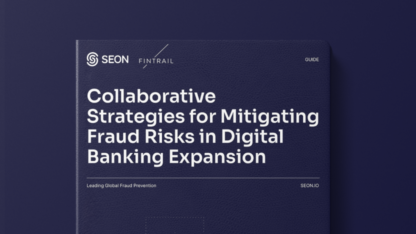With a masters in Counter Fraud & Counter Corruption Studies and currently studying a Ph.D. in Criminal Justice Studies; Claire Maillet is a scholar of the criminal mind and shares some of her insights in this episode.
How do you best balance user experience with security?
It’s an old age question, isn’t it? I’ve worked in risk teams in the fraud space where the focus is purely ‘we don’t really care about the customer, we just want to keep the bad guys out.’
And I’ve also worked in the operation space where it’s ‘yes, we want to keep the bad guys out, but we really love the customer and we need to keep them happy’ so I’ve seen it from both perspectives.
It is a balance that is definitely difficult. But from my experience, what I’ve come to try to portray is that if you increase the security, you may make customers less happy than a smooth onboarding journey.
However, I’d like to think that, especially in this day and age where everything’s gone digital, the customer would understand that the business is doing what it can to protect the customer.
I don’t know if this is just because of my background, but if I had to go through more stages to sign up for a business, I would be more inclined to think actually is the business doing this to help me? And I would almost feel safer in that respect.
I know that there are people out there who will think no, it has to be smooth. It has to be easy but for me personally, if there are say maybe one or two extra steps, then actually that would make me trust the company more because I don’t see the point in trying to implement tech for the sake of, if it serves a purpose, then I don’t see why it shouldn’t be done.
If you’re able to justify why you’re adding more security steps in there, then I think the customer would hopefully be grateful and return because ultimately you’re doing what you can to protect them and their money as well.
What role does mental health play within the fraud space?
As a mental health first aid, I am more than happy to have those conversations and I think in return you become aware of how you then apply what you’re experiencing to customers who are vulnerable.
I think, it does open up a new sort of space that people might often overlook, because if you can’t put yourself in their shoes, then it’s so much more difficult to understand how you can, as a company or service, help such customers.
Definitely from that perspective, that has really helped me from an operations financial crime standpoint, but also just from a view of being able to assist a company culture.
For me, being able to openly talk about my mental illnesses, I think really helps to get my colleagues to understand that they aren’t the only person who probably feels the way that they’re feeling.
It just starts to open conversations and break down the stigma. I think anything that anyone can do to help normalize those discussions, I think it’s definitely all for the better.
It should be key for all businesses to have mental health first aiders. I think that sort of goes without saying it’s really beneficial and should be mandatory.
From a risk team perspective, it should just be something that people are willing to talk about as the job can be incredibly intense. Even just to say as a manager that you’re open to having those discussions is huge.
I think it’s become all the more important. Now I think that mental health finally starting to get the voice that it needed.
If I’m able to offer my team, both of those that I think that puts me in a good position to ultimately keep my team happy and to look after them from both a professional and personal viewpoint as well.
Who do you think represents the Cat and who represents the Mouse in this scenario and why?
I would say that the fraudsters are the mice because they always want to be up ahead.
As much as I hate to say it, they are often one step ahead but I think we are always going to be chasing them due to the nature of the work and I’ll go as far as saying we are always going to be one step behind potentially.
By the time we’ve worked out how to tackle one type of fraud, they’ve already worked out how to do the next lot of fraud, haven’t they? So we are always going to be chasing.
You can have the best tech and the best team in the world to help your aim of fighting fraud, but they’ll always find new ways.
Even before we can think about how is this piece of tech this legislation going to be exploited, they would have already figured it out.
But I don’t necessarily think it’s always my mice we’re chasing, I think because obviously, fraud comes in so many different forms so we don’t always know what we’re looking for until it hits.
You could say that we’re the cats and we’re chasing mice, but actually, we’re also chasing unknowns to an extent because we can hazard a guess as to what sorts of frauds are going to be out there based on what we already know, but we don’t know what we don’t know!
I think they’ll always be mice to catch, but where we’re also chasing the unknown as well and that’s what makes this job challenging.








